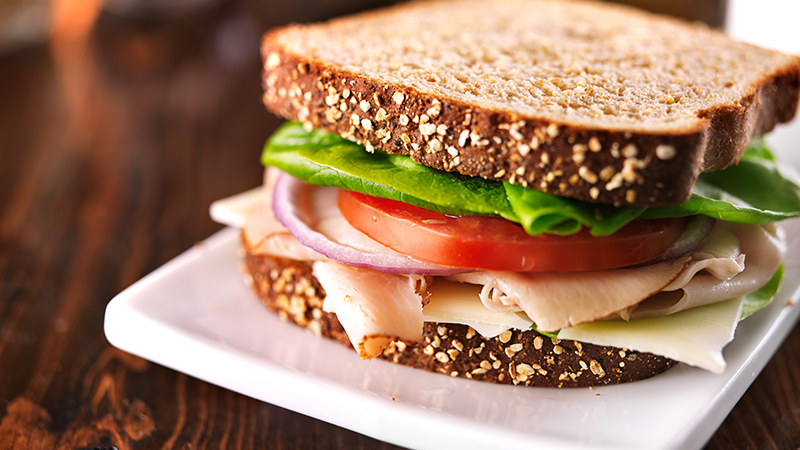UCLA Health staff fight patient food insecurity
Share This Article

By Sandy Cohen, UCLA Health
Initially, it was just a courtesy: Staff at the UCLA Health Bowyer Oncology Center put out a fruit plate and sandwiches at noon for patients receiving chemotherapy infusions during lunchtime. Since they couldn’t leave during the infusion, this made food readily available.
Then nurses noticed that some patients refused morning or afternoon appointments, insisting on lunchtime sessions. And some complained when the sandwich platter started being passed around on the opposite side of the room first, limiting the available selection when it reached them.
Meanwhile, doctors reported patients skipping doses of medications that needed to be taken with food.
“We started catching on,” says Nancy Freeman, clinical director for the Bowyer Oncology Center. “These were signs of food scarcity.”
So she and colleagues made recognizing and alleviating food scarcity the center’s focus for its annual Commission on Cancer accreditation, which calls for identifying barriers to care. A 2018 study found that food insecurity affects about 28% of people with a cancer diagnosis.
The Bowyer Center’s effort is twofold, Freeman says: standardizing a process to sensitively identify patients who may be experiencing food scarcity and delivering resources to those patients in timely and meaningful ways.
“It’s nice that we’re passing out a meal at lunch to everybody, but how do we really get more substantial things to people who truly need it?” she says. “And then how do we humanely and kindly ask these questions in ways that are not bothersome or embarrassing, so they feel they can reach out and let someone know their needs?”
Making personal connections
When Cassandra Chambers, a senior administrative analyst with UCLA Health cancer services, heard that some patients weren’t taking their medicine because they didn’t have food to take it with, she couldn’t stop thinking about it.
“It sat with me that entire weekend,” Chambers says. “So on Monday, I went in and said, ‘How can I help?’”
Chambers is part of the task force for the food insecurity project, supporting social workers as they streamline and standardize their processes for identifying people in need and working directly with local businesses and donors to provide resources for patients who need food.
Merchants have donated gift cards for local supermarkets and restaurants, she says. Grocers have also offered a selection of canned foods, which are particularly helpful for patients who may have to avoid fresh produce for medical reasons.
The food scarcity pilot program, now in its fifth month, is already expanding to offer parking vouchers and other support, Freeman says.
“If someone has food scarcity, they may not have an internet connection, they may not have a cell phone,” she says. “So finding these resources and sharing them uniformly with social work is key.”
Standardizing processes to identify and support people through inpatient and outpatient treatment is ongoing, she adds. Because food insecurity may be difficult for patients to discuss, it’s important to develop methods that clearly denote who may be at risk without having to question them repeatedly in different settings, Freeman says. This also makes patients easier to track and support, Chambers adds.
Meeting community needs
The Bowyer Oncology Center is an outpatient infusion center treating patients from all over Southern California.
“A high volume of our patients have federally funded insurance and often travel long distances to get here,” Freeman says. “So even though UCLA might be located in an affluent area, much of the population is coming long distances from areas more impacted by food insecurity.”
Chambers has been buoyed by the response to her request for donations for food and financial support from local businesses, she says.
“People are like, ‘I can’t imagine that, because having a cancer diagnosis is already hard enough as it is, and to add food insecurity on top of it?’” she says. “So a lot of corporations are definitely willing to help.”
While the Commission on Cancer accreditation process lasts one year, the food insecurity program will continue beyond that, Freeman says.
“We’re calling this a pilot phase,” she says. “Why does it have to be just cancer services? It should be everybody in the hospital.”
